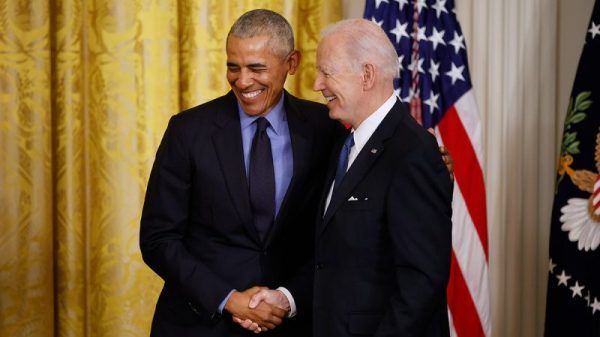Over the objections of its three liberal justices, the Supreme Court on Monday denied a petition from a prisoner confined for years without the chance to exercise outside his cell.
The treatment of mentally unstable Illinois inmate Michael Johnson had previously divided the U.S. Court of Appeals for the 7th Circuit. It rejected his lawsuit alleging that keeping him in his windowless cell except for an occasional trip for a shower violated the Constitution’s prohibition of cruel and unusual punishment.
Justice Ketanji Brown Jackson said the lower court was wrong. “For three years, Johnson had no opportunity at all to stretch his limbs or breathe fresh air,” wrote Jackson, who along with Justices Sonia Sotomayor and Elena Kagan said the high court should have allowed Johnson’s lawsuit against prison officials to go forward.
As is customary, the court’s majority did not provide a reason for denying Johnson’s petition.
As Jackson noted, individual justices for years have been concerned about solitary confinement. “Indeed, serious objections to this form of imprisonment have been brought to this Court for more than a century,” she wrote.
But what made Johnson’s case more unusual — and limited — was his objection to not being allowed into the caged outside area where inmates are allowed more room to move about than what is afforded in a cell that Jackson described as the size of a parking space.
Johnson, convicted for his part in a home invasion, has profound mental illness and was placed in solitary confinement in Pontiac Correctional Center as a result of multiple disciplinary infractions. He racked up a series of “yard restrictions,” which meant no trips outdoors. The individual punishments lasted 30 to 90 days, “but the restrictions were stacked such that, in total, Johnson received over three years’ worth” of punishments, Jackson wrote.
Johnson’s condition worsened. “He suffered from hallucinations, excoriated his own flesh, urinated and defecated on himself, and smeared feces all over his body and cell,” the justice wrote. “Johnson became suicidal and sometimes engaged in misconduct with the hope that prison guards would beat him to death. … Worse still, Johnson’s dire physical condition led to further yard restrictions, as prison guards faulted him for being disruptive and having an unclean cell.”
“This vicious cycle,” Jackson wrote, continued until Johnson was transferred to a specialized mental health treatment unit, where his condition improved.
The Supreme Court has recognized that exercise is among the basic provisions of a prison, along with warmth and food. But a panel of the 7th Circuit said a prison’s ability to deny the opportunity to exercise for a set period of time for serious infractions does not violate the Constitution, nor does “stacking” such punishments.
Johnson’s attempt to have the full circuit review that decision failed on a tie vote.
Jackson said the circuit court had erred by focusing on whether prison officials were justified in issuing the individual restrictions rather than the effect they had on Johnson. The correct standard should be whether the conditions of confinement are attributable to a prison official’s “deliberate indifference” to an inmate’s health or safety, she wrote.
The lower court “did not consider the impact of cumulative exercise deprivation on Johnson’s physical and mental health, or what was known to prison officials about the risks of such deprivation,” Jackson wrote. “And there was more than enough evidence to support a reasonable jury finding that the overall 3-year deprivation of yard time that Johnson was subjected to was the result of unconstitutional deliberate indifference.”
The case is Johnson v. Prentice.


































